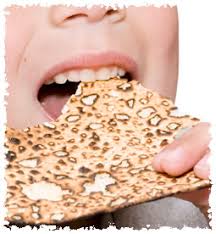 The New York Times featured a rather pleasant article about the yearly Seder taking place in the White House - the first president to ever conduct a Seder at 1600 Pennsylvania Avenue. At first glance, it's a great story: a non-Jew, looking for richness and wisdom from an ancient Jewish practice, conducting a seder mixing themes of freedom from bondage with freedom from slavery. What could be bad?
The New York Times featured a rather pleasant article about the yearly Seder taking place in the White House - the first president to ever conduct a Seder at 1600 Pennsylvania Avenue. At first glance, it's a great story: a non-Jew, looking for richness and wisdom from an ancient Jewish practice, conducting a seder mixing themes of freedom from bondage with freedom from slavery. What could be bad?For Obama, I think it's great. The seder is a powerful experiential way to teach his children about the values of freedom, and a great parental teaching tool. Chazal understood this very fact when they designed the Seder so many years ago. I'm not worried about Obama or his daughters. I'm more worried about what Obama's Seder says about its observance in America, and specifically, how Pesach is celebrated by the Jews.
I wrote once about how I feel bad for religious Christians on Christmas. While the United States "celebrates" the holiest day on the Christian calendar, it has, in truly American style, commercialized the holiday to the point where most Americans of every faith see no contradiction between their own beliefs and putting up a tree in the living room. As the Passover Seder grows in popularity across the United States (and it will, especially now that the President celebrates it), it will grow broader and less focused on the Jewish concepts of redemption from bondage and the creation of the Jewish nation and concentrate more on the broader themes of freedom in general.
No, it's not bad for Barack Obama or Valerie Jarett to spend an evening focusing on freedom vs slavery. That's fine. But David Axelrod is spending his Pesach focusing on those very same themes. And while I guess I'm happy that Axelrod will be celebrating Pesach at all, it's important to understand the true focus and theme of the night of the Seder, and impart those values to our children, which include:
- The direct, Divine role that God played in freeing the nation of Israel - אני ולא מלאך, אני ולא שרף
- Our transformation from a band of slaves into a Holy People - ולקחתי אתכם לי לעם
- The critical role of ritual in religious life
- The understanding that God freed us not to behave as we see fit, but instead to have the ability to worship Him and receive the Torah - הוציאנו ממצרים...ונתן לנו את התורה
But what about the rest of America's Jews? How many of them even think about these themes on the night of the Seder? As the Seder grows even more ubiquitous in American life, will American Jews return to their roots, and wonder about the "Jewish" elements of the Seder? Or, will the Americanization of the Pesach Seder transform one of the last truly Jewish rituals practiced by a large number of American Jews into a nice meal devoid of any real Jewish meaning?












